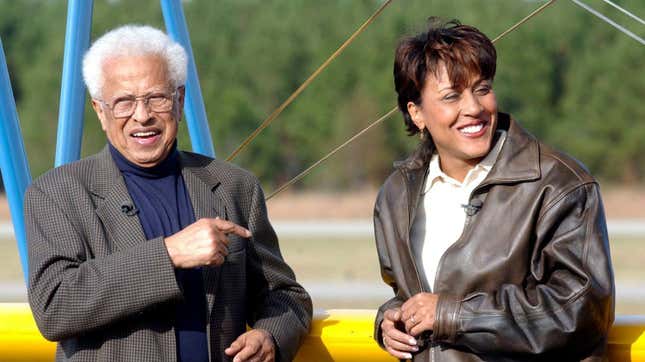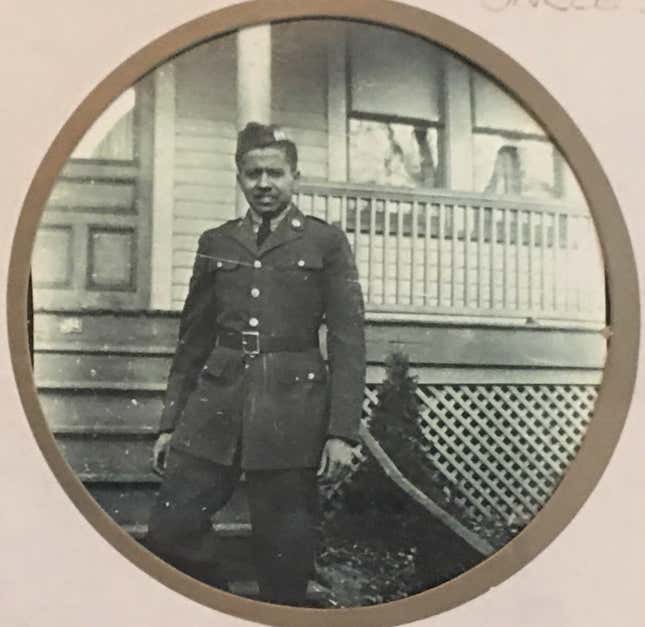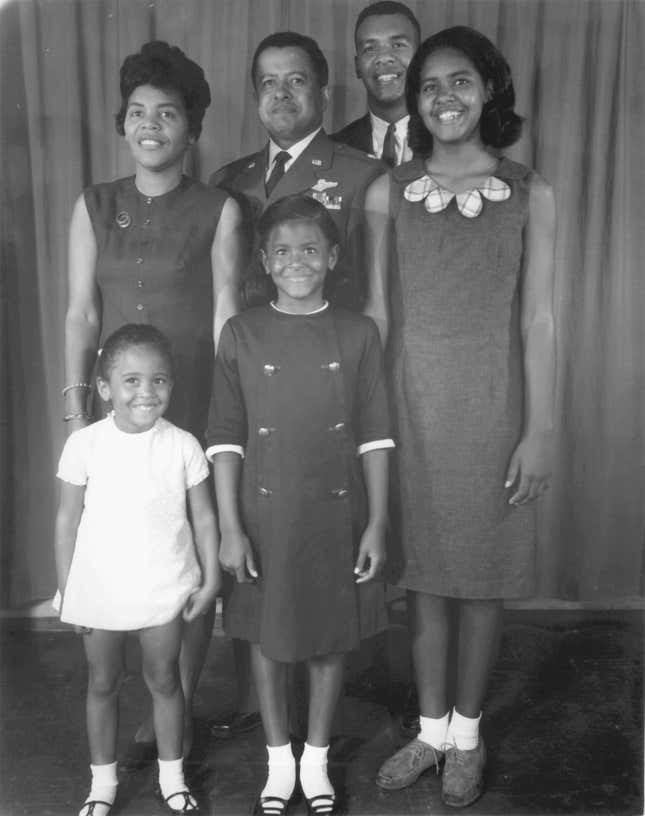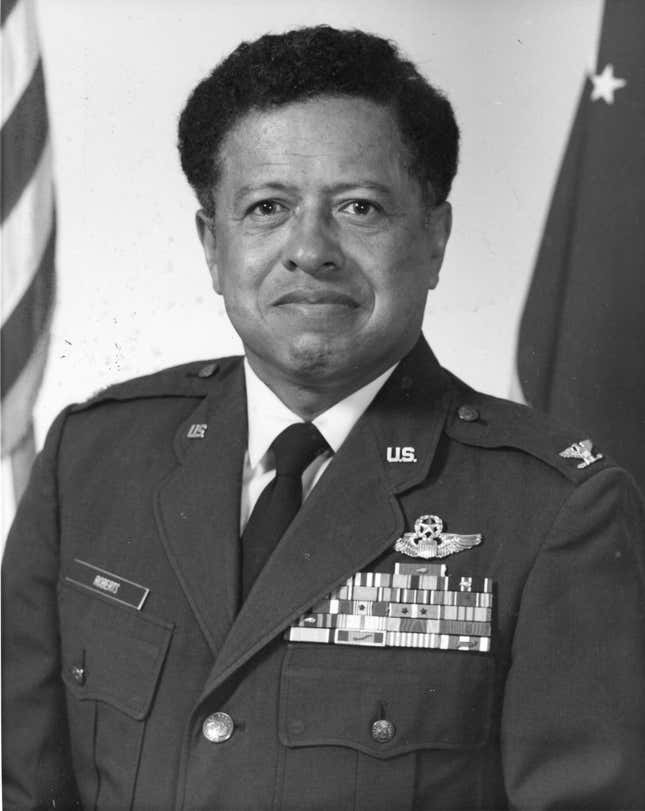
If you’ve paid attention to Robin Roberts’ rich career and life, you’ll probably describe her as tenacious and celebrate her strength.
Whether it was entering a sports journalism career when there were far fewer colleagues who looked like her than today or returning to her revered post as co-anchor of Good Morning America in 2012 after being diagnosed with a type of myelodysplastic syndrome (also known as MDS, which is a rare form of blood cancer), Roberts has faced many challenges. And yet, she’s conquered each one with such grace, subsequently serving as a source of inspiration and wisdom in the process.
After speaking with her, it’s safe to say she likely got a lot of that from her father, the late Colonel Lawrence E. Roberts (1922-2004), who served as a pilot with the Tuskegee Airmen and a colonel in the U.S. Air Force, totaling 32 years of military service.

Continuing her tenure as an executive producer (she will also serve as EP in an upcoming Mahalia Jackson project starring Danielle Brooks), Roberts is lending her producing chops and voice to The History Channel’s upcoming special Tuskegee Airmen: Legacy of Courage. Airing just in time for Black History Month, Tuskegee Airmen is a one-hour special examining the broader legacy of the African-American military pilots who fought in World War II and became the first men of color to fly as pilots in the U.S. Air Force. Their very existence was a pivotal step toward ending segregation in the military and served as a precursor to the civil rights movement, especially given the fact those very Black war heroes were treated horrifically when they returned back to their American home.
Roberts, who was born right in Tuskegee, Ala. has many ties to this piece of Black history, which is also American history. In a phone interview with The Root, she shared several memories and stories told to her growing up, as well as the fact she was able to return to Tuskegee with her father and fly in a plane similar to the kind he flew as a pilot.
“I am proud to be the daughter of Colonel Lawrence E. Roberts,” Roberts told The Root, her pride seeming to burst through the phone. “I think about him daily. I blow a kiss to my mother and father every time I step into the studio at GMA and I know that they’re cheering me on from their heavenly balcony. My father taught me the three Ds. He taught me discipline, determination, and about ‘Da Lord.”

“As a young boy growing up in New Jersey, he would take a broomstick handle and pretend it was his throttle and that he was flying,” Roberts recalled. “This was a time where Black people didn’t have [many] rights in this country. [It wasn’t] his family, but others were like, ‘Come on, man, you’re not going to ever fly a plane.’”
Still, his perseverance and passion persisted. That same tenacity carried the elder Roberts through his grueling pilot training and the many bouts of outright racism and microaggressions in between.
“He told me, ‘I never felt more free than when I was in the air,’” Roberts noted. “ [He said] ‘I felt more freedom in the air than I did on the ground as a Black man.’”
Being intimately familiar with that sort of persistence and tenacity—plus, a well-known phrase Roberts and I both agree on, Barack Obama’s “audacity of hope”—carried Roberts throughout her own journey.
“Initially, when I got into broadcasting, I wanted to be a sports reporter and anchor, and there were no women there[...], there were no Black women doing it,” Roberts recalled. “And I thought, my daddy had the nerve to dream about being a pilot. So, I’m like, I’m going to be scurred, but I want to be a sports reporter?! Come on, Robin!”

Roberts notes how her father’s legacy lives on in the special, citing significant figures and leaders such as Lt. Col. Shawna Rochelle Kimbrell, who became the first African American female combat fighter pilot and the current superintendent of the U.S. Air Force Academy, “a Black man!,” she exclaims—Lt. Gen. Richard M. Clark. As Roberts notes, Tuskegee Airmen: Legacy of Courage will air on “the premiere destination for historical storytelling” and she hopes audiences see the connection between the Tuskegee Airmen, the civil rights movement of the 1960s and the 2020 Black Lives Matter movement uprisings.
Though the upcoming special will focus on race relations, Roberts did comment on the historical relevance that the Tuskegee experiment has on today as Black people navigate the novel era of the COVID-19 vaccine. “That is very important. [...] I have thought about that and when I’ve talked at GMA, I’ve made that connection between the Tuskegee experiment and what we’re going through—the fear that people have today.”
Overall, Roberts hopes the documentary special will educate viewers as well instill some sense of optimism and pride.
“[My father] was still as patriotic [and] loved this country at a time that it didn’t love him back, [yet] it didn’t prevent him from throwing back his shoulders, keeping his head up high and persevering,” Roberts concluded. “When I think about the double victory that the airmen and my father [won] fighting overseas as they did and then fighting racism at home, it remains an important lesson in how excellence can beat adversity, including Black excellence.”

Tuskegee Airmen: Legacy of Courage airs Feb. 10 at 8 p.m. ET on The History Channel.

